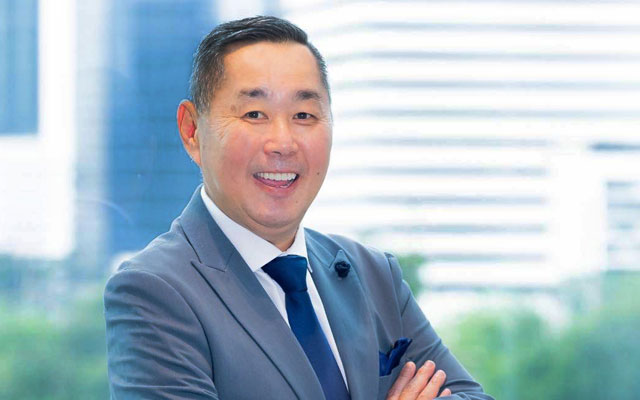With more than 40 years in the global exhibitions industry, Loy Joon How has witnessed firsthand how the tradeshow landscape has evolved. Now as president of the Thailand Exhibition Association (TEA), he is determined to future-proof the sector by fast-tracking digital adaptation and embracing innovation

What are your immediate priorities as president?
Innovation is one of three core pillars I’ve prioritised for TEA.
The other two are growth and sustainability. To grow the sector, we’re focused on expanding opportunities for our members through government lobbying and other activities such as networking opportunities, training & skill upgrades, domestic market developments, and international promotion.
Our aim is to grow our association to be a strong industry voice in advocacy and representation, above all advocating for policies to protect and upgrade our industry.
You have long been a champion of innovation. What role will embracing technology play in TEA’s future?
Digital transformation is no longer optional. It is essential for uplifting industry standards, and that is why one of my first actions as president was to establish a dedicated Innovation and Technology Committee.
Its purpose is to lead and promote the adoption of technology, innovation and digitalisation across our industry. This will be achieved through education, training, resources and sharing of best practices.
Considering the evolving landscape of exhibitions, what factors contribute to the present urgency?
The global trade exhibition has evolved over the years. It is no longer just a temporary marketplace for buyers and sellers to meet.
Today’s exhibitions serve as industry gathering platforms – not just for business – but for networking, exchange of knowledge, and discussion on trends and addressing key issues.
To further improve Thailand’s international competitiveness in the exhibition sector, Thai exhibition organisers now need new capabilities and deeper domain knowledge to create relevant content and deliver value for the event in order to stay relevant.
Applying digital technologies, particularly AI, alongside hybrid event formats, is key to enhancing the face-to-face experience.
How would you rate Thailand’s pace when it comes to AI adoption?
Adoption pace is more industry-based than region-based. Some industries have embraced digitalisation faster than others. The exhibition industry, whether it’s in Thailand or whether it’s in the rest of the other Asia Pacific region, is somewhere in the middle.
What are the gaps in Thailand’s exhibitions industry?
We are seeing a shift from transactional events – where buyers and sellers meet to do business – to more experience-driven ones, particularly among younger generations of attendees and exhibitors.
Hence, the players in Thailand’s exhibition industry also need to be able to adapt (in order to deliver) sustainable, personalised, engaging, and immersive experiences that are now the expectations from a younger and increasingly sophisticated market.
One way to deliver such experiences is to apply technology, especially AI.
What are TEA’s initiatives to support the younger generation?
A new initiative is the formation of a TEA Young Professional Club under the purview of our Membership Relations Committee.
This TEA Young Professional Club is a community of exhibition industry young professionals for networking, training and activities designed to support their career development, skill development, and foster the growth of business connections and sharing of experiences.
Can you share your vision and priorities in terms of sustainability?
TEA is a key advocate for sustainability and regenerative events.
Through our Standards and Sustainability Committee, we are working with the Thailand Convention and Exhibition Bureau in encouraging the implementation of the Thailand Sustainable Event Standard (TSEMS) to promote the adoption of sustainability practices in Thailand’s MICE industry.
TSEMS is a three year certification standard adopted from ISO 20121 into a simpler and localised framework for Thailand. This programme is part of TEA’s broader efforts in championing our industry to adopt green practices among our members.
We are also a co-campaigner with the Thai Chamber of Commerce for their food waste campaign to donate 12 million meals to the needy. By participating in this project, we aim to divert rescue food to meaningful purposes and create more sustainable events by reducing food waste.
TEA is also advocating for the use of recyclable or reusable booths. We are exploring how we can work with existing international standards and programs to adopt these frameworks for Thailand.
For starters, we already have our annual best stand awards where sustainability is one of our key judging criteria.
On top of all this, we conduct workshops and seminars on the adoption of eco-friendly exhibitions, regenerative exhibitions and sustainability best practices.
What role should legacy associations like TEA play in today’s market?
It’s not about age. It’s about how active the association is, and how the association can be a proactive player in order to advocate to the government or to advocate to its own industry to move the industry forward.





















